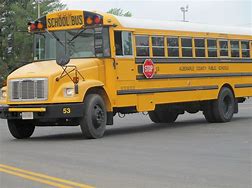 by Suzanne Munson
by Suzanne Munson
Recent General Assembly debates about state budgets open a cornucopia of questions about the future of education in Virginia — charter schools, lab schools, vouchers, funding for religious schools? Now might be a good time to examine some background about public education in Virginia.
Thomas Jefferson proposed the state’s first legislation in support of universal education, for rich and poor alike, in 1779. He viewed pubic education as necessary for an informed, successful democratic republic: “If a nation expects to be ignorant and free, it expects what never was and never will be.”
As school funding involved tax dollars, well-to-do Virginia legislators ignored Jefferson’s appeal for decades. Meanwhile, our neighbors to the north were educating their populace. It would take a Civil War and its aftermath for this state to develop a nascent system of public education.
Today, Virginia’s school divisions across the board receive 14% less funding from the state than the 50-state average, equal to about $1,900 less per student. This is neither admirable nor sensible, if we are to have a successful economy, students trained for challenging work, and an informed electorate.
Politicians like to criticize Virginia’s beleaguered inner-city schools, saying that more money will not help their plight. They place most of the blame for poor academic performance on teachers and administrators. I have met some of these administrators and instructors and find that they are courageous, concerned individuals doing their best under bad circumstances.

In places like Richmond, many teachers and students go to school every day in decaying, unhealthy buildings. Teachers work with a population of children who are often traumatized by bad parenting, violence, and dangerous neighborhoods.
A good education is their only way out of this mess, which will only grow worse as qualified teachers leave the profession. More reading specialists, smaller classrooms, and better learning environments are needed. When young students fall behind in reading, they eventually drop out entirely, often entering the school-to-jail pipeline.
If nothing else motivates politicians to better fund these schools, perhaps public safety and jail expenses should be concerns. Studies show that the majority of inmates who are housed at tremendous government expense failed to learn to read at an early age. As the saying goes, reading is fundamental.
Another hot debate in the General Assembly concerns providing parents with vouchers for private schools. While this sounds very attractive to many parents, there are pitfalls. Politicians are increasingly ignoring the hallmark of separation between church and state. They may approve of public tax dollars for a Baptist private school, for example, but what if radical Islamists and dangerous fringe cults also ask for funding for their schools?
These requests will naturally crop up regarding state money, further dividing rather than uniting our population, under commonly accepted principles. All the while, desperately needed funds for public education will be cannibalized by a proliferation of special interests.
There are places in the United States like the Chicago suburbs where private schools aren’t considered necessary because public schools are excellent and well-funded. Graduates of New Trier High School, for example, attend the best colleges in the country. Their student-teacher ratio is 11.7 to 1, similar to that of good private schools. In some Virginia schools, the ratio is 30 to 1 or even 35 to 1. Often, when a teacher is absent, classrooms are combined, making the numbers an impossibility for effective teaching. In crowded rooms, education suffers.
It would be a great benefit to Virginians if we had more first-rate schools like New Trier across the state, with smaller classrooms and excellent teachers who are well paid and carefully chosen. This is not going to happen without substantially improved funding from the Virginia General Assembly and localities.
Regarding tax cuts, these are obviously used by politicians as election bait. If Virginia is to have good roads, bridges, schools, and other necessities, it must have an adequate tax base.
It is reasonable that some of our budget surplus can be used as a one-time rebate to tax-payers. This would be popular. But now is also a golden opportunity for Virginia to up its game for public education. The state’s future success depends on it.

Leave a Reply
You must be logged in to post a comment.